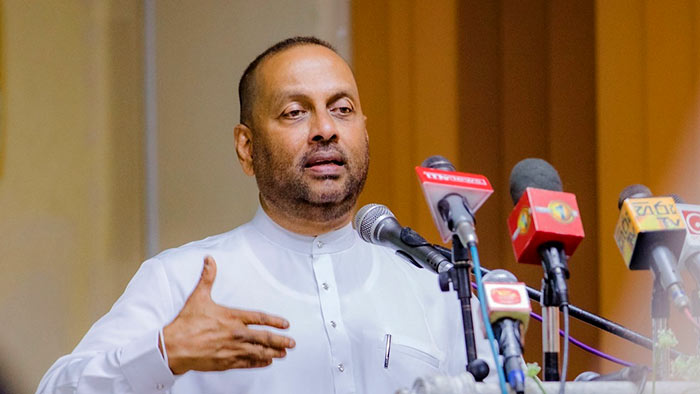Sri Lanka ex-minister urges restart of toque macaque export to China

Former Agriculture Minister of Sri Lanka, Mahinda Amaraweera said he has officially asked President Anura Kumara Dissanayake to restart the paused project of sending toque macaques to zoos in China.
He explained that this plan could still move forward and bring benefits to Sri Lanka’s farming sector while strengthening ties with China. He also shared that the earlier plan involved sending 100,000 toque macaques to Chinese zoos which had already gone through three rounds of discussions with Chinese officials.
Both countries had exchanged documents for the project showing readiness to start. However the project was stopped because of legal action by environmental activists.
Amaraweera expressed his frustration that despite holding many talks with environmental groups, they did not offer practical solutions. Some of their ideas were unrealistic, such as leaving half an acre of land for animals on every five acres of farmland which would harm farmers’ productivity.
Another suggestion was to tie metal sheets to trees to stop animals from climbing, which he called ineffective and impractical.
The minister emphasized the urgency of the situation and urged the President to quickly consider restarting the project. He said China is still interested in receiving the 100,000 toque macaques which makes the plan possible to revive.
He explained that animals like toque macaques, monkeys, porcupines, peacocks and giant squirrels are causing serious damage to crops in Sri Lanka. Farmers, especially in rural areas are suffering heavy losses due to these animals destroying their fields.
Amaraweera compared the situation to Australia which recently culled millions of kangaroos to protect farms and maintain balance in nature. He pointed out that, in Sri Lanka, exporting animals like toque macaques to countries that value them like China could be a better solution than culling.
He also said the President’s upcoming visit to China is a good chance to discuss this issue at a high level. By doing so Sri Lanka could not only solve its farming problems but also improve its ties with China economically and diplomatically.
The minister suggested exploring similar deals with other countries in the future. This approach could help manage harmful wildlife while bringing income to the country.
Amaraweera criticized some environmentalists for focusing on public attention rather than solving real problems. He urged them to visit rural areas to see the daily struggles of farmers whose livelihoods are at risk.
He warned that if these problems are not solved, many farmers might quit farming and move to cities to find jobs like driving three-wheelers which would increase poverty and unemployment in urban areas.
Finally, he said exporting toque macaques could be an ethical and workable solution to reduce crop damage. It would show that Sri Lanka can manage wildlife problems responsibly while balancing conservation and the needs of its people. This project could also set an example for handling similar issues in the future.

Latest Headlines in Sri Lanka
- Sri Lanka President announces plan to restart Kantale Sugar Factory April 13, 2025
- Police shoot at fleeing hijacked car in Kotahena – suspect escapes April 13, 2025
- Large stock of ice and heroin seized at Kudawella harbor in Tangalle April 13, 2025
- CID obtains 90-day detention order on Pillayan April 12, 2025
- Sri Lankan Tri-Forces continue Humanitarian Mission in Myanmar April 12, 2025



There are many four-legged monkeys in leadership claiming false PhD’s.
They should also be sent to Zoos in China.